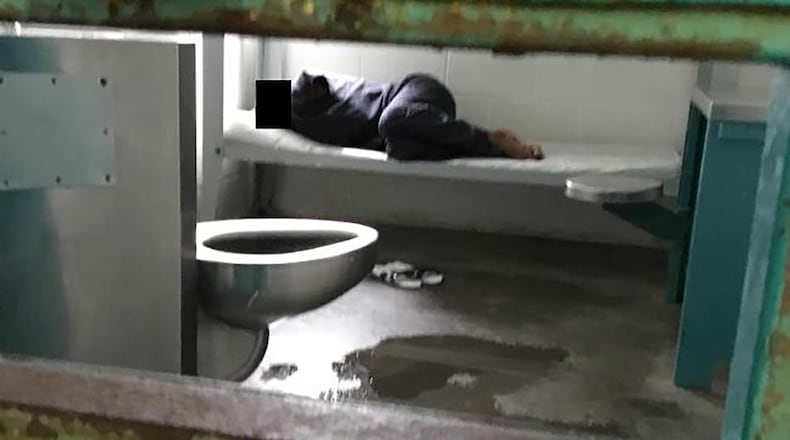A federal appeals court in Atlanta on Wednesday removed an injunction requiring Fulton County improve treatment of mentally ill women at its jail annex in Union City.
Though litigation against the county’s head jailers continues, Fulton Sheriff Pat Labat said he was grateful for the 11th U.S. Circuit Court of Appeals’ ruling and would continue improving conditions. Ted Jackson was sheriff when the suit was filed.
“We remain committed to providing not only constitutional minimums, but treating those in our care and custody with a level approaching best practices in the industry,” Labat wrote.
One of the county’s top judges in September 2018 said there were “barbaric” conditions at the jail. Lawyers for the Southern Center for Human Rights and Georgia Advocacy Office in early 2019 began suing on behalf of women experiencing extended periods in solitary confinement.
In July 2019, a federal judge required the jail to let the roughly 30 to 40 mentally ill women leave their cells up to four hours a day at least five days a week.
Women were allowed to leave their cells for no more than one hour a day and many didn’t go outside for weeks at a time, Southern Center lawyer Sarah Geraghty previously said. Some inmates, she said, attempted suicide or harmed themselves to get out of their cells.
Senior Judge Gerald Tjoflat wrote Wednesday he was removing the injunction because it had expired.
“We acknowledge that 90 days is a short amount of time to reach a final decision on the merits of a complex civil case about prison conditions. Nonetheless, that is what the text of [the law] calls for,” Tjoflat wrote.
The Southern Center and GAO wrote they were “disappointed by the decision of the Eleventh Circuit.”
“The majority’s holding today threatens to leave prisoners in vulnerable, likely unconstitutional situations without relief,” wrote Judge Charles Wilson in his dissent.
About the Author
The Latest
Featured



